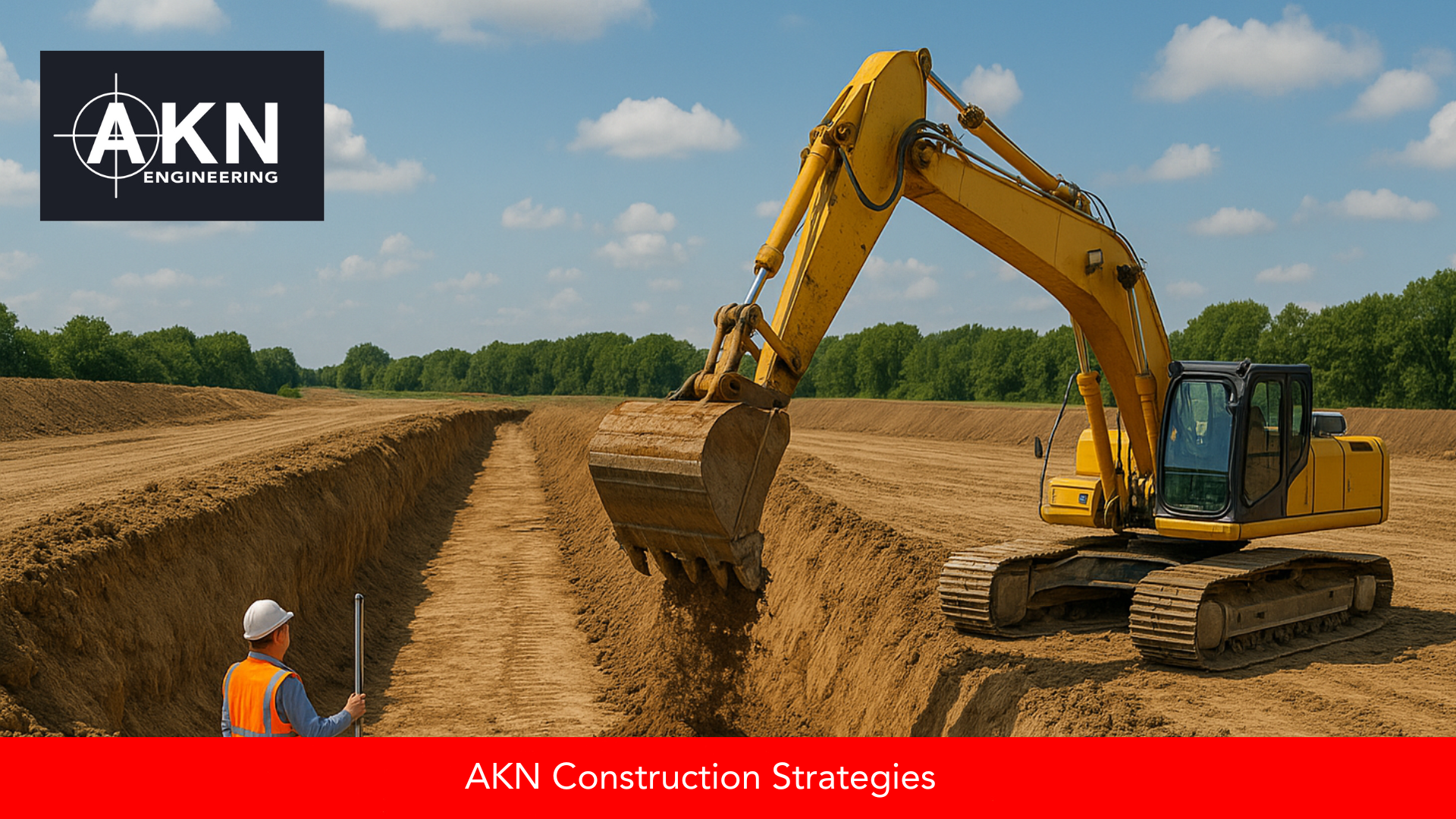Topographic Surveys vs Volume Surveys: What’s the Difference?
Topographic surveys vs volume surveys: the terms are often used side-by-side on highways schemes, but they serve different purposes. Understanding the distinction can save muck-away costs, keep monthly valuations on programme, and help you avoid awkward conversations with the client’s QS.
Accurate volume surveys during the excavation stage help keep muck-away costs under control and support monthly valuations.
1. What is a Topographic Survey?
A topographic survey (or “topo”) captures the existing ground levels, features and boundaries of a site before work starts. Using total stations, GNSS and often drone photogrammetry, we create a 3-D model that tells the design team exactly where everything is and how high it sits.
Think of it as the project’s ground-truth map – the baseline for design, setting-out and machine-control models.
More on topo surveys: Land Surveying basics – RICS
2. Where Volume Analysis Comes In
A volume survey (sometimes called earthworks or cut-and-fill analysis) builds on that topo data. By comparing the original surface with a design surface – or with a more recent survey after bulk excavation – we calculate:
Cut volumes – material to be taken away
Fill volumes – material to be imported or re-distributed
Stockpile volumes – how much is sitting on site
The maths happens inside Civil 3D or similar software, but it only works if the underlying topo is tight. Rubbish in, rubbish out.
For a quick refresher on earthworks, see earthworks.
3. When Do You Need a Volume Survey?
Design & tender stage - Approximate cut/fill figures help inform UK topographic survey quotes, guide haul-road layouts, and estimate muck-away costs.
Muck-away / bulk earthworks stage - Live volumes avoid under- or over-ordering wagons.
Monthly valuations stage - QS teams use the numbers to agree payment for material moved.
Project hand-over stage - Final volumes prove that specification tolerances have been met.
On a highways job, our team in Hertfordshire often carries out an initial volume survey straight after topsoil strip, then monthly until formation. The same approach works on housing platforms, flood-defence bunds and quarry restoration.
4. Cost, Programme and Compliance Benefits
Cost control: Accurate volumes stop you paying for phantom lorry loads and protect margins when subcontractors price disposal by the tonne.
Programme certainty: Real-time data feeds the site diary and keeps planners honest about haul distances and plant utilisation.
Client confidence: Clear, auditable reports support applications for payment and strengthen relationships when changes hit the job.
Regulatory compliance: On highways schemes, Highways England (now National Highways) expects verifiable quantity records for environmental waste returns.
Tip: Always agree the grid, datum and surface definition before you press “calculate”. A mismatch of 50 mm across a ten-acre site can swing the bill by thousands.
5. Putting It All Together on a Highways Scheme
Let’s say we’re widening a trunk road near Cambridge.
Topo first: We capture kerb lines, drainage covers and existing carriageway levels to ±10 mm.
Design surface: The highways designer issues a digital terrain model (DTM) for the proposed carriageway.
Pre-earthworks volume survey: We overlay the topo and DTM to forecast 25 000 m³ cut and 18 000 m³ fill.
During works: Weekly drone flights update the surface, and the volume report shows muck-away reducing exactly as planned.
Monthly valuation: Our PDF and CSV outputs let the main contractor’s QS certify payment without argument.
Because the topo and volume data come from one team – AKN – there’s no finger-pointing if numbers don’t align.
Ready to Measure with Confidence?
AKN Engineering’s volume survey for earthworks service turns raw topo data into clear, actionable numbers. We cover Hertfordshire, Cambridgeshire, Essex, Norfolk and Suffolk, specialising in highways volume analysis for local contractors.
🔗 Get more detail on our Volume Analysis service or call the team to chat through your next project. 01279 927 033


